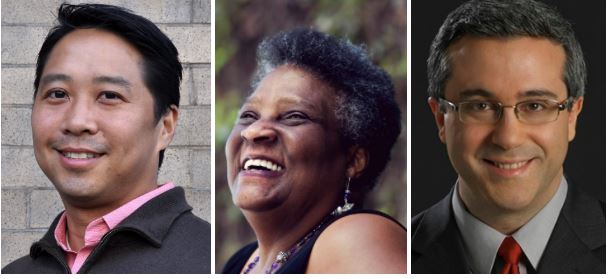By SUNITA SOHRABJI/EMS Contributing Editor
Despite overwhelming support for affirmative action, a large percentage of Asian Americans in California remain undecided on Prop 16, a Nov. 3 ballot measure that would reinstate affirmative action in education, government hiring, and public contracting.
The measure is sputtering with voters in the state: a poll released Sept. 16 by the Public Policy Institute of California found that only 31 percent of California voters said they would vote for the measure, while 47 percent said they were against it. 22 percent remained undecided.
62 percent of Asian American voters in California support affirmative action, according to an AAPI Data survey released Sept. 15. Asian Indians and Vietnamese Americans overwhelmingly supported affirmative action, while more than half of Chinese, Japanese and Korean Americans also supported the concept.
But, when asked how they would vote on Prop. 16 this November, more than one third of Asian American voters in California said they were undecided, according to the AAPI Data survey. The largest group of undecideds were Vietnamese Americans: more than half of those surveyed said they did not know how the would vote.
Eight percent of all Asian Americans surveyed said they did not know about the measure.
Prop. 16 enjoys the highest amount of support from Asian Indians: 58 percent said they would vote for the ballot measure. Only one-third of Chinese, Korean, and Vietnamese voters said they would vote for the measure; 38 percent of Chinese Americans said they planned to vote against it.
If it passes, Prop. 16 would repeal the 1996 ballot measure Prop. 209, which banned the state from considering race, sex, and ethnicity in college admissions, and government hiring and contracts. Asian Americans have traditionally been against affirmative action used in college admissions, saying that the policy discriminates against students with greater levels of achievement. In February, a federal court judge ruled against a group of Asian American students who had been denied admission to Harvard (The lawsuit was filed by a group headed by Edward Blum, a White conservative. Not a single Asian American student testified in the case that they were discriminated against by Harvard in the admissions process) The group has appealed; analysts predict the case will eventually make its way to the Supreme Court, which has previously issued rulings on affirmative action.
Karthick Ramakrishnan, founder of AAPI Data, said the prospects for the measure’s passage “don’t look good.” Ballot propositions in general are difficult, while the language of Prop 16 makes it especially troublesome for voters to understand. “A massive voter education campaign over the next few weeks could make a difference,” he said.
At a Sept. 18 briefing with reporters, organized by Ethnic Media Services, Eva Patterson, president and founder of the Equal Justice Society, concurred that the language of Prop 16 was onerous for voters, and not the language she would have used. But since the ballot measure aims to repeal Prop. 209, which did not use the phrase affirmative action, writers of Prop. 16 were also stymied in how they could phrase their measure, she explained.
The Equal Justice Society has raised $15 million to support Prop 16. Patterson said the organization will air television ads in October, and will also soon have digital ads out.
AsAmNews has Asian America in its heart. We’re an all-volunteer effort of dedicated staff and interns. Check out our new Instagram account. Go to our Twitter feed and Facebook page for more content. Please consider interning, joining our staff, or submitting a story.


